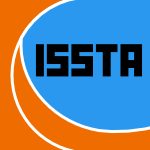24 papers:
 ESOP-2015-SieczkowskiSBP #consistency #logic
ESOP-2015-SieczkowskiSBP #consistency #logic- A Separation Logic for Fictional Sequential Consistency (FS, KS, LB, JPP), pp. 736–761.
 CHI-2015-BlytheSRO #design #game studies
CHI-2015-BlytheSRO #design #game studies- Solutionism, the Game: Design Fictions for Positive Aging (MB, JS, JR, CO), pp. 3849–3858.
 CSCW-2015-ProstMT #design #energy #towards #using
CSCW-2015-ProstMT #design #energy #towards #using- From Awareness to Empowerment: Using Design Fiction to Explore Paths towards a Sustainable Energy Future (SP, EEM, MT), pp. 1649–1658.
 DUXU-DD-2015-Penzenstadler #design #tool support
DUXU-DD-2015-Penzenstadler #design #tool support- A Toolkit for SE for Sustainability — A Design Fiction (BP), pp. 634–643.
 DUXU-DD-2015-SakamotoN
DUXU-DD-2015-SakamotoN- Incorporating Fictionality into the Real World with Transmedia Storytelling (MS, TN), pp. 654–665.
 CHI-2014-Blythe #design #research
CHI-2014-Blythe #design #research- Research through design fiction: narrative in real and imaginary abstracts (MB), pp. 703–712.
 CHI-2014-BonsignoreMNHKD #authentication #design #game studies #interactive
CHI-2014-BonsignoreMNHKD #authentication #design #game studies #interactive- Design tactics for authentic interactive fiction: insights from alternate reality game designers (EMB, VM, CN, DLH, KK, AD), pp. 947–950.
 DUXU-TMT-2014-FrancaMS #internet
DUXU-TMT-2014-FrancaMS #internet- Digital Self: Fiction and Non-fiction on the Internet (ACPdF, LRdLM, MMS), pp. 537–547.
 SAC-2014-SeoKTC #analysis #framework #network #social
SAC-2014-SeoKTC #analysis #framework #network #social- A structural analysis of literary fictions with social network framework (JS, SHK, HT, HGC), pp. 634–640.
 DUXU-CXC-2013-Marcus
DUXU-CXC-2013-Marcus- User-Experience and Science-Fiction in Chinese, Indian, and Japanese Films (AM), pp. 72–78.
 HT-2012-DinhNT #effectiveness #network #question #social
HT-2012-DinhNT #effectiveness #network #question #social- Cheap, easy, and massively effective viral marketing in social networks: truth or fiction? (TND, DTN, MTT), pp. 165–174.
 HT-2012-MitchellM #hypermedia
HT-2012-MitchellM #hypermedia- The paradox of rereading in hypertext fiction (AM, KM), pp. 103–112.
 ESOP-2012-JensenB #logic
ESOP-2012-JensenB #logic- Fictional Separation Logic (JBJ, LB), pp. 377–396.
 CHI-2012-TanenbaumTW #design
CHI-2012-TanenbaumTW #design- Steampunk as design fiction (JT, KT, RW), pp. 1583–1592.
 ICMT-2012-WimmerKKRSS #model transformation #reuse #rule-based
ICMT-2012-WimmerKKRSS #model transformation #reuse #rule-based- Fact or Fiction — Reuse in Rule-Based Model-to-Model Transformation Languages (MW, GK, AK, WR, JS, WS), pp. 280–295.
 DUXU-v2-2011-Zeller #design #what
DUXU-v2-2011-Zeller #design #what- What You See Is What You Don’t Get: Addressing Implications of Information Technology through Design Fiction (LZ), pp. 329–336.
 DAC-2008-YagiRKHTMSDM #question
DAC-2008-YagiRKHTMSDM #question- ESL hand-off: fact or EDA fiction? (HY, WR, TK, EH, HT, MM, GS, ND, GM), pp. 310–312.
 ICEIS-J-2008-IbrahimNM08a #web
ICEIS-J-2008-IbrahimNM08a #web- “Fact or Fiction?” Imposing Legitimacy for Trustworthy Information on the Web: A Qualitative Inquiry (ENMI, NLMN, SM), pp. 297–306.
 HT-2007-WrightP #case study
HT-2007-WrightP #case study- A study of publisher, writer, and reader: different perspectives on digital fiction (HW, DP), pp. 157–158.
 HCI-MIE-2007-EusticeRWSNR #named
HCI-MIE-2007-EusticeRWSNR #named- nan0sphere: Location-Driven Fiction for Groups of Users (KE, VR, AW, MS, NTN, PLR), pp. 852–861.
 KR-1998-Horrocks #logic #question #using
KR-1998-Horrocks #logic #question #using- Using an Expressive Description Logic: FaCT or Fiction? (IH), pp. 636–649.
 TRI-Ada-1994-HollowayVGS #formal method
TRI-Ada-1994-HollowayVGS #formal method- Formal Methods Fact vs. Fiction (CMH, BLDV, DG, MS), pp. 256–258.
 HT-ECHT-1992-Kahn #hypermedia
HT-ECHT-1992-Kahn #hypermedia- Hypertext Fiction and Literary Theory (Demonstration) (PK), p. 295.
 TAV-1989-Offutt
TAV-1989-Offutt- The Coupling Effect: Fact or Fiction (AJO), pp. 131–140.
 ESOP-2015-SieczkowskiSBP #consistency #logic
ESOP-2015-SieczkowskiSBP #consistency #logic CHI-2015-BlytheSRO #design #game studies
CHI-2015-BlytheSRO #design #game studies CSCW-2015-ProstMT #design #energy #towards #using
CSCW-2015-ProstMT #design #energy #towards #using DUXU-DD-2015-Penzenstadler #design #tool support
DUXU-DD-2015-Penzenstadler #design #tool support DUXU-DD-2015-SakamotoN
DUXU-DD-2015-SakamotoN CHI-2014-Blythe #design #research
CHI-2014-Blythe #design #research CHI-2014-BonsignoreMNHKD #authentication #design #game studies #interactive
CHI-2014-BonsignoreMNHKD #authentication #design #game studies #interactive DUXU-TMT-2014-FrancaMS #internet
DUXU-TMT-2014-FrancaMS #internet SAC-2014-SeoKTC #analysis #framework #network #social
SAC-2014-SeoKTC #analysis #framework #network #social DUXU-CXC-2013-Marcus
DUXU-CXC-2013-Marcus HT-2012-DinhNT #effectiveness #network #question #social
HT-2012-DinhNT #effectiveness #network #question #social HT-2012-MitchellM #hypermedia
HT-2012-MitchellM #hypermedia ESOP-2012-JensenB #logic
ESOP-2012-JensenB #logic CHI-2012-TanenbaumTW #design
CHI-2012-TanenbaumTW #design ICMT-2012-WimmerKKRSS #model transformation #reuse #rule-based
ICMT-2012-WimmerKKRSS #model transformation #reuse #rule-based DUXU-v2-2011-Zeller #design #what
DUXU-v2-2011-Zeller #design #what DAC-2008-YagiRKHTMSDM #question
DAC-2008-YagiRKHTMSDM #question ICEIS-J-2008-IbrahimNM08a #web
ICEIS-J-2008-IbrahimNM08a #web HT-2007-WrightP #case study
HT-2007-WrightP #case study HCI-MIE-2007-EusticeRWSNR #named
HCI-MIE-2007-EusticeRWSNR #named KR-1998-Horrocks #logic #question #using
KR-1998-Horrocks #logic #question #using TRI-Ada-1994-HollowayVGS #formal method
TRI-Ada-1994-HollowayVGS #formal method HT-ECHT-1992-Kahn #hypermedia
HT-ECHT-1992-Kahn #hypermedia TAV-1989-Offutt
TAV-1989-Offutt









